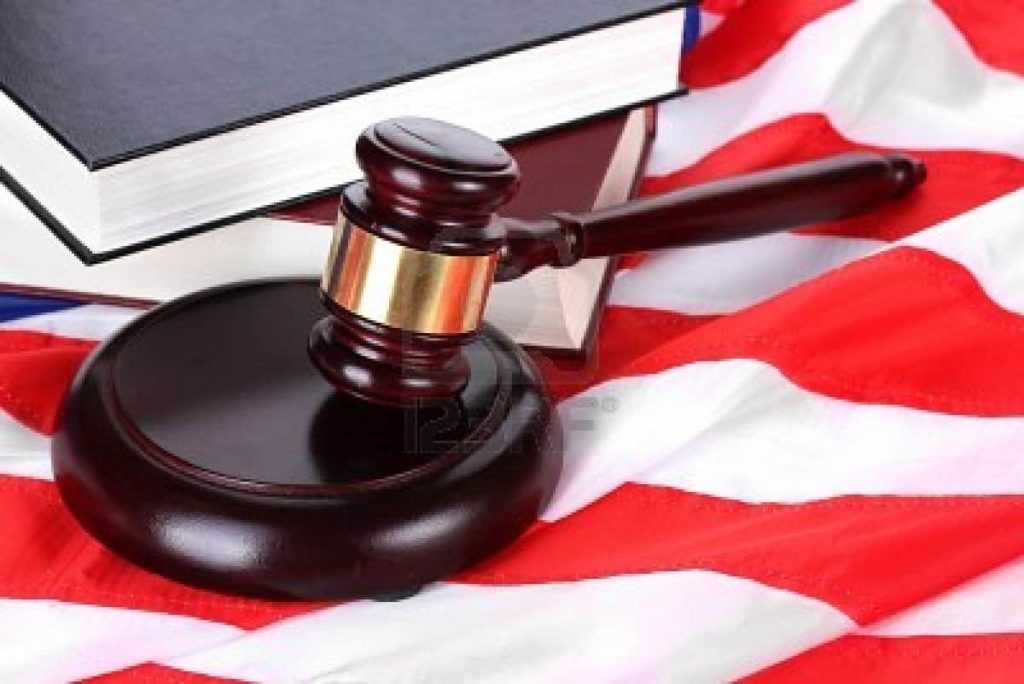The Center for American Progress’ Willful Blindness

The Center for American Progress (CAP) unveiled its report Foreign Law Bans: Legal Uncertainties and Practical Problems at a May 16, 2013, event at CAP’s Washington, DC, headquarters. CAP’s analysts are unconcerned by the influence of sharia and other foreign laws in America.
CAP’s event and report opposed state-level legislative efforts across the United States to implement versions of the American Law for American Courts (ALAC) model law of the American Public Policy Alliance (APPA). The text of this law voids any foreign legal decision not respecting the “same fundamental liberties, rights, and privileges granted under the U.S. and [State] Constitutions.” Arizona, Kansas, Louisiana, and Tennessee have adopted such laws.
Stephen M. Gelé, a Louisiana lawyer active in his state’s adoption of ALAC, explored its rationale at Breitbart. Gelé analyzed six appellate cases reviewing trial court decisions with varying results based upon troubling elements of sharia. Gelé drew upon 50 state court appellate cases involving sharia law documented in a Center for Security Policy (CSP) study.
Contradicting CAP arguments that existing law negated sharia’s influence on the American judiciary, Gelé cautioned that “some appellate opinions, and almost all trial court judgments, are not widely published.” “Many, if not most, trial court decisions applying sharia” underwent no appeal, a process costing $10,000-50,000 in divorce and child custody cases. Regardless, “women and children should not be forced to play legal Russian roulette” with courts “applying legal doctrines, including sharia, inconsistent with American constitutional rights and public policy.”
Similar concerns prompted me at the end of the CAP panel (mark 1:13 on the online video) to ask about any “seepage” of sharia norms into American free speech jurisprudence. As referenced by me, in recent years several American incidents involving Islam and free speech have been deeply disturbing. An October 2011 assault by a Muslim immigrant upon an atheist mocking Islam’s Prophet Muhammad in a Pennsylvania parade, for example, led to a district court judge dismissing clearly documented criminal charges amidst his discussion of Islamic prohibitions on blasphemy.
Another concern is so-called “libel tourism” in which various Muslim individuals have sought libel judgments against American authors in foreign jurisdictions not possessing America’s strict free speech safeguards. In response, the APPA, the Middle East Forum’s (MEF) Legal Project (LP), and others have promoted “Rachel’s Law,” named for Rachel Ehrenfeld after being found guilty in a British court for libelously accusing a Saudi prince of funding terrorism. Now in effect at the federal level and in several states, such laws prevent the enforcement of foreign libel judgments not respecting American free speech standards. As indicated by me in my question, Rachel’s Law parallels the analysis of ALAC with respect to the single issue of libel, and ALAC would make any specific Rachel’s Law unnecessary.
David Yerushalmi, derided in the CAP report as the key “anti-Islam” activist behind the foreign law bans, meanwhile, has taken on along with his colleague Robert Muise at the American Freedom Law Center (AFLC) several cases defending free speech involving Islam. AFLC, for example, defeated breaching the peace charges brought against four Christians who distributed religious literature to Muslims at a 2010 Dearborn, Michigan, Arab festival. In a civil rights suit against Dearborn city officials, AFLC later obtained a settlement including a city apology for the arrest and prosecution. AFLC is similarly currently litigating another case involving the very same Dearborn Arab festival in 2012 and proselytizing Christians.
Intricate legal concerns involving posited unintended consequences from foreign law bans dominated the CAP panel and report. As a matter of principle, however, CAP and its allied panelists seemed to recognize no threat in sharia, as the recorded response to my question shows. Report coauthor Faiza Patel from the Brennan Center for Justice, for example, discussed the judicial “Void as against Public Policy Rule” previously cited by the panel and the CAP report such that any free speech infringement “would be kicked out.” Yet as this article indicates,this rule, in the words of the APPA, is often unavailing “because state legislatures have generally not been explicit about what their public policy is relative to foreign laws.”
The panel’s comments were in accord with the report’s assertion that the “basic tenets of Sharia would be familiar to any Christian or Jew: faith in a single god, prayer, charitable giving, and fasting.” Many might disagree with this assessment such as Christians around the world suffering from sharia-based religious repression in Muslim-majority countries such as Egypt, Iran, Iraq, and Saudi Arabia, as documented by the United States Commission on International Religious Freedom (USCIRF).
On the other hand, a previous CAP report, Fear, Inc.: The Roots of the Islamophobia Network in America, lists Yerushalmi and his Society of Americans for National Existence (SANE) among the “five key think tanks led by scholars who are primarily responsible for orchestrating the majority of anti-Islam messages polluting our national discourse today.” The Middle East Forum and its president Daniel Pipes also make the list.
The Middle East Forum’s Legal Project receives a brief description in this report as an entity seeking “to limit defamation lawsuits brought by…aggrieved Muslim organizations” that assert “their constitutionally protected right of using the legal system for redress.” In particular, the Iranian-American Seid Hassan Daioleslam might differ with this assessment after the Legal Project helped him defeat a defamation suit brought by Iran’s American lobby, the National Iranian American Council (NIAC). NIAC’s meritless suit ended with dismal and $184,000 in sanctions for NIAC’s malfeasance in altering and hiding documents during discovery.
CAP’s willful blindness to the continued encroachment of sharia in the American court system continues to permeate its repeated faulty analysis.
- Suhaib Webb Goes to Washington - November 13, 2014
- The Center for American Progress’ Willful Blindness - June 9, 2013
